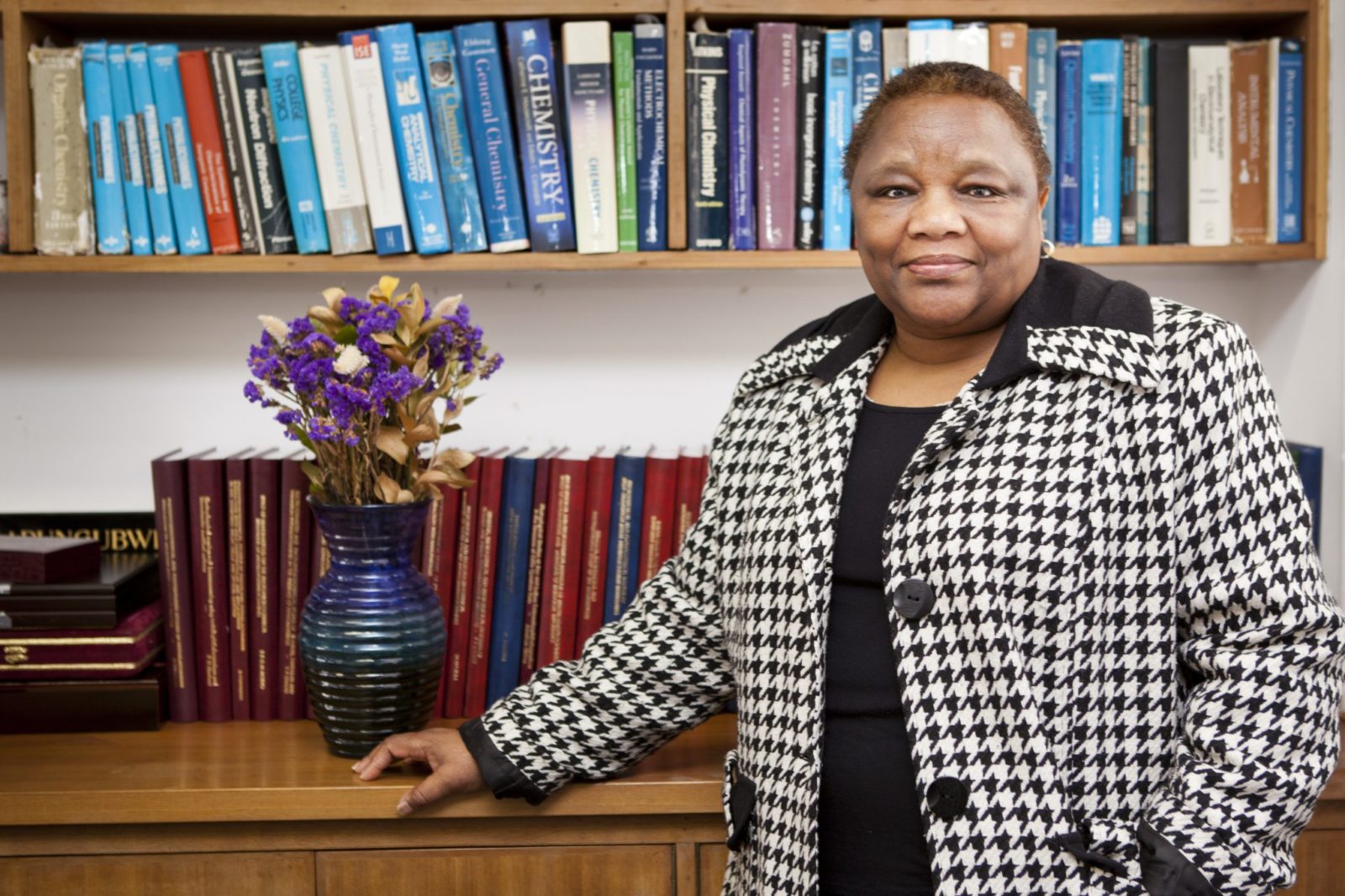She has been listed as one of the ‘12 Names to Change the World’ by the Spanish National Centre for Research on Human Evolution as well as one of the top 10 most influential women in science and technology on the African continent by technology news website IT News Africa.
That’s 62-year-old professor Tebello Nyokong from Rhodes University in South Africa’s Eastern Cape, who is breaking the boundaries of science in cancer research.
Meeting her in her office at the university, one is immediately drawn to her warm personality and the twinkle in her eye. By her own admission, she likes to laugh a lot, and loudly.
Yet, the work she does is no laughing matter.
As Professor of Medicinal Chemistry and Nanotechnology at the university, as well as Director of the DST Mintek Nanotechnology Innovation Centre, Nyokong has attracted millions of rands in funding towards her research based on photodynamic therapy (PDT) of cancer.
Loading...
PDT, which uses dyes and light, is already available for some cancers in the United States (US), Europe and Russia, but currently has strong side effects as the drugs hone in on healthy as well as cancerous tissues.
“Our whole aim is to make molecules that are cancer-specific so that healthy tissue will not be affected,” says Nyokong, going on to detailing the specifics, which any lay person would find hard to understand.
“In our research, PDT is combined with nanoparticles that absorb and re-emit light, thus enabling for visualization in addition to cancer treatment. In cancer therapy, nanoparticles act as delivery agents of the drugs selectively to the cancer tissue. This is due to the fact that cancer has leaky vasculature which allows nanoparticles to enter.”
Simply put, this means the drugs will specifically target cancer cells, which will see cumbersome treatments such as chemotherapy move into the dark ages.
Having overseen several formal collaborations with counterparts across the globe, Nyokong has also been awarded a prestigious Adjunct Professorship by the University of Tromsø in Norway and numerous international scientists have visited her laboratory. She has also hosted many postdoctoral candidates from around the world.
But she is quick to point out that her research is still in the pre-clinical trial phase and many years away from reaching the market.
Considered an icon in the world of science, Nyokong’s state-of-the-art laboratory is a far cry from her primary school days in Lesotho where as a child, she spent alternate days tending sheep and on the weekends, assisted her father who was a construction laborer. These tasks led her to conclude she could do anything a boy could do.
“At the start my father influenced my path. He believed that the apartheid system could only be defeated through education and I was encouraged to excel at a very young age,” she says.
And excel she did, having chosen art subjects for her matric, she changed to science two years before sitting her matric exams.
“The teachers accepted me after this mad move from arts to science and when I entered the University of Lesotho, I was greatly influenced by my lecturer, Dr Gray. After that I was driven by my desire to beat the odds,” she says.
Nyokong went on to obtain her PhD from the University of Western Ontario in 1987 and a Fulbright Fellowship for postdoctoral study at the University of Notre Dame in the US.
“I had academic loneliness, since there were very few women when I started. Now my past students have become professors and are my academic colleagues,” she says.
And she is excited and outspoken about Africa’s potential to excel in science.
On being awarded the National Research Foundation Lifetime Achiever Award last October, she says, “I am driven by being an African, completely, I’m passionate to see us succeed.”
And she is equally passionate when it comes to her students.
“I urge all young people in the country to study to the highest possible level [PhD]. The development of South Africa will depend on highly skilled labor. No country can have lasting economic growth or development without a solid science base. Science is thought to be hard, no, it’s not difficult,” she says. She wishes schools were not judged on their pass rate, but rather on their pupils’ abilities in maths and science.
Her work ethic is phenomenal and her research output has been described as simply extraordinary. In 2012, she published 51 articles, all of them internationally peer-reviewed; in 2013, she released 52 publications and 17 so far this year.
Nyokong admits she has a hectic schedule, between supervising students and attending scientific conferences around the world, which includes going to Oman this year for the World Academy of Sciences conference, where she will be the global representative in chemistry.
And when she’s not in the lab or traveling, Nyokong loves walking, as well as gardening, which she describes as “physical activity with a purpose”. She confesses a great weakness when it comes to beautiful bags and shoes and her ‘must reads’ are Malcolm Gladwell’s David and Goliath
and Outliers.
A grandmother of two, her favorite holiday destination is Mauritius. As we end the interview,
3I ask her what it’s like to have come from a shepherd girl to a leading woman of science.
“Sometimes I think gosh, that is not me. I’m just doing my work, that’s all it is. I love my students and I embarrass them a lot sometimes.”
When she laughs, it’s from the core of her being. And with the list of honors and accomplishments she has garnered, no wonder she smiles – and the world of science with her.
Loading...
